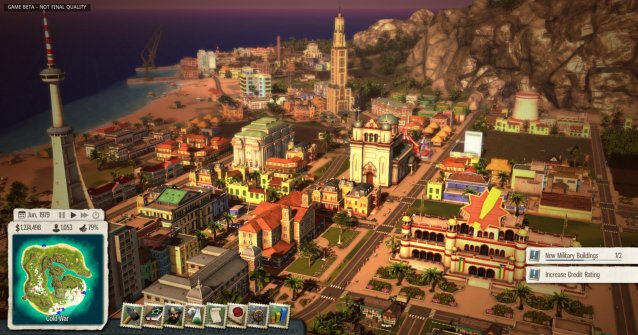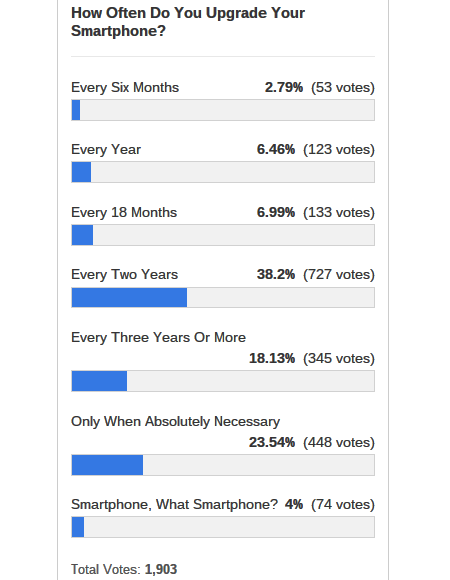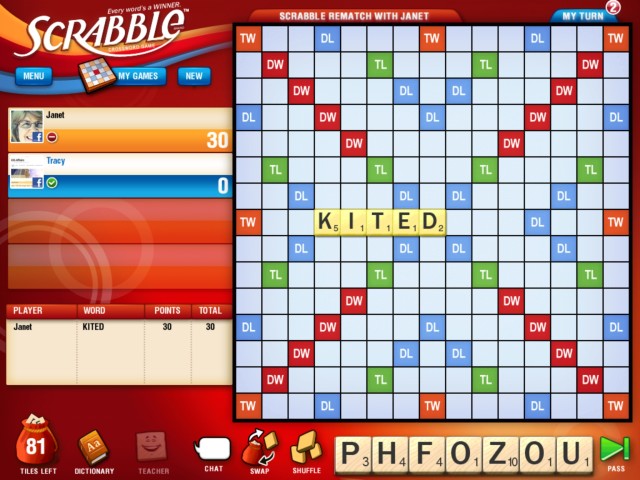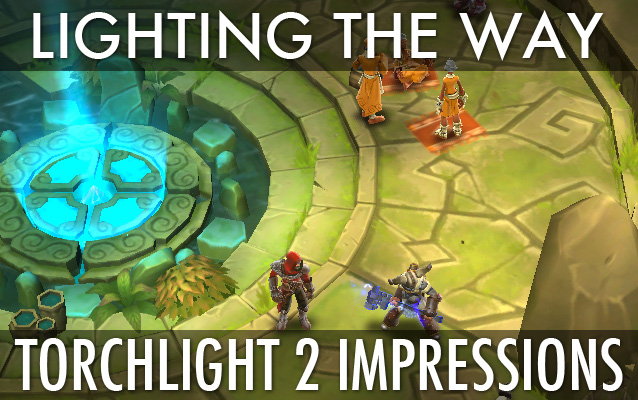

“I am here to remind you of the joys of dictatorship,” booms your chief advisor upon starting Tropico 5’s first tutorial mission.
The Tropico series has always reveled in its unusual theme - that of a Caribbean dictator running a fledgling banana republic - and Tropico 5 continues in that vein, with no attempts at imitating its blander, more sterile genre-mates like SimCity or CitiesXL. Given the reception the most recent SimCity garnered, that’s probably a good thing.

Tropico 5 is the first city-building game I’ve played since 2013’s disappointing SimCity reboot. In many ways, it feels like the antithesis of SimCity. The stark contrast between the two is immediately apparent, as almost every facet of their respective designs is wildly different.
While SimCity constrains the player to a relatively tiny plot of land, Tropico 5 gives you an entire tropical island to sprawl across. SimCity focuses on the big picture of the management of a teeming city, Tropico 5 allows you to focus on individuals, right down to telling them where to work, or exiling them and their family from your city, if you so desire. Perhaps most noticeably, SimCity offers a blank canvas to work with, allowing you to come up with your own identity for your city, while Tropico forces you into a fairly specific mold.
This last difference is a bit of a mixed bag, and might be one of the things that turns off people who are looking for a more traditional city-builder. Unlike SimCity’s ability to let you build any kind of ridiculous city you want, from a casino-ridden pseudo-Vegas to a wasteland of heavy industrial production, Tropico 5’s identity is much more set in stone. On the one hand, it means there’s plenty of extra flavour to take in in Tropico, like the fact that you can rig elections to remain in power, and have to defend yourself from armed uprisings when your citizenry grows unhappy. On the other hand, it means there’s less room for personal expression, as the variety of city types you can build is diminished by the pre-existing theme.
That’s not to say that there’s no tailoring of your governing style available, though. There’s a system of “edicts” that allow you to make drastic changes in how your city-state is run, and you’re able to draft a constitution that lays the ground rules for how your government functions. These systems provide enough variety to keep things interesting; just perhaps not enough to satisfy more free-form builders.

Visually, Tropico 5 is a definite upgrade from its predecessor, and does a great job of capturing the balmy climes of the Caribbean islands. It’s still evident that Tropico isn’t a big-budget franchise though, and those expecting cutting-edge graphics will be underwhelmed. Realistically, you probably shouldn’t be looking for state of the art visuals in a genre like this, anyway.
Unfortunately, it doesn’t feel like a lot else has changed between Tropico 4 and 5. There’s a new system that allows you to progress through various periods of history, which opens up some new, more modern building options, but much of the core gameplay remains incredibly similar to Tropico 4. The interface, which is dense and occasionally confusing, feels like it’s been copied almost verbatim from the previous release. This isn’t a new problem for the series, as Tropico 4 was accused by many critics of being too similar to Tropico 3.
The disappointment of that iterative design philosophy is at least somewhat offset by the price of the new instalment. At $36, Tropico 5 is a whole lot cheaper than most games of this scope are at launch, and that makes the slow forward progress of the franchise’s development quite a bit easier to swallow.

It’s perhaps the tiredest cliche in game reviews, but the old line about “fans of the genre” likely enjoying what Tropico 5 has to offer rings pretty true. While it’s a reasonably accessible game that won’t completely chase off new players, it’s definitely a game that knows its audience, and is determined to continue iterating on its existing formula in fairly safe ways.
That’s by no means a bad thing; despite its similarity to its forebears, it’s still a welcome escape from other city-building franchises, and is a deep enough experience to keep players engaged for quite some time. One can’t help but feel like it’s shackled by its presumably-slim budget, though, as its lack of radical improvements and its mediocre overall production value will make it a hard sell for people who were indifferent to previous Tropico games.
7.5/10
Tropico 5 is developed by Haemimont Games and published by Kalypso Media. It is available on PC for $35.99. A copy of the game was provided by the publisher for the purpose of this review.




 6 Classic Board Games You Can Play on Your Phone
6 Classic Board Games You Can Play on Your Phone Lighting the Way: Torchlight 2 Beta Impressions
Lighting the Way: Torchlight 2 Beta Impressions How to Build a Spaceship in the Sims 4 and Explore Space
How to Build a Spaceship in the Sims 4 and Explore Space 7 Advanced Tips and Tricks to Make You a Mint Expert
7 Advanced Tips and Tricks to Make You a Mint Expert Starcraft 2: Legacy of the Void Bugs And Issues Fixes Guide
Starcraft 2: Legacy of the Void Bugs And Issues Fixes Guide